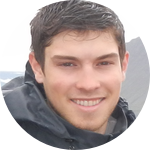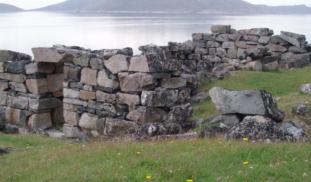121
0
0
Like?
Please wait...
About This Project
We know that Vikings settled and lived in Greenland sometime during the Middle Ages, but many questions remain regarding what climate was like and how the Vikings actually lived during this period. By coring lakes near the settlements and analyzing biomarkers within the sediments, this project will attempt to reconstruct both the paleoclimate and paleo-environment in this region. Knowing what the climate was, and how it changed through time, will give us clues about how the Vikings were able to farm and graze livestock, as well as what changed that led to these settlements demise.

Browse Other Projects on Experiment
Related Projects
Kumeyaay landscapes, knowledge transfer, and land stewardship in San Diego
The goal of this project is to leverage indigenous knowledge with geographic information systems (GIS) and...
When did we start the fire?
I will conduct a series of experiments looking at fire micro-residues in modern and archaeological contexts...
Mapping and dating one of the most important early human settlements in eastern North America
With geophysical techniques, we will search for Paleo-Indian archaeological features around the famed Bull...

